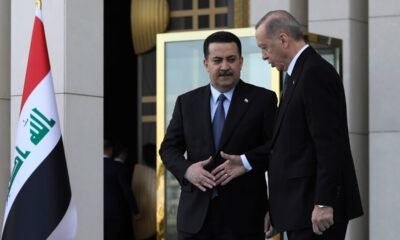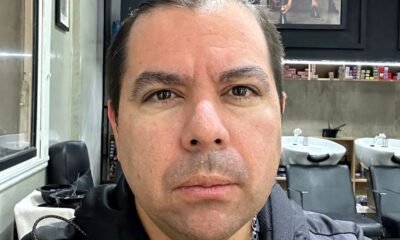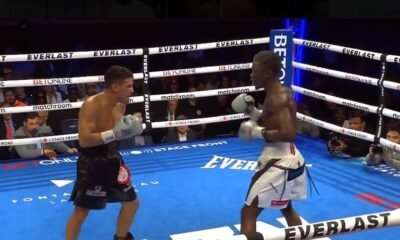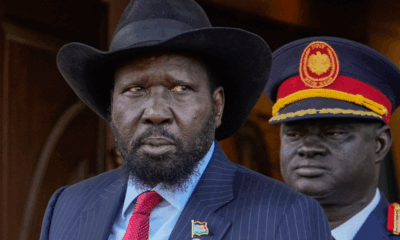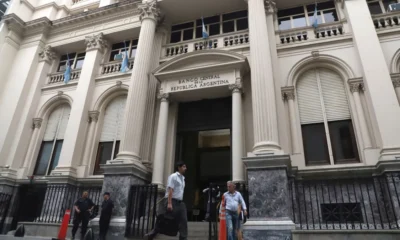INTERNACIONAL
Things to know about the Turkish local elections that will gauge Erdogan’s popularity
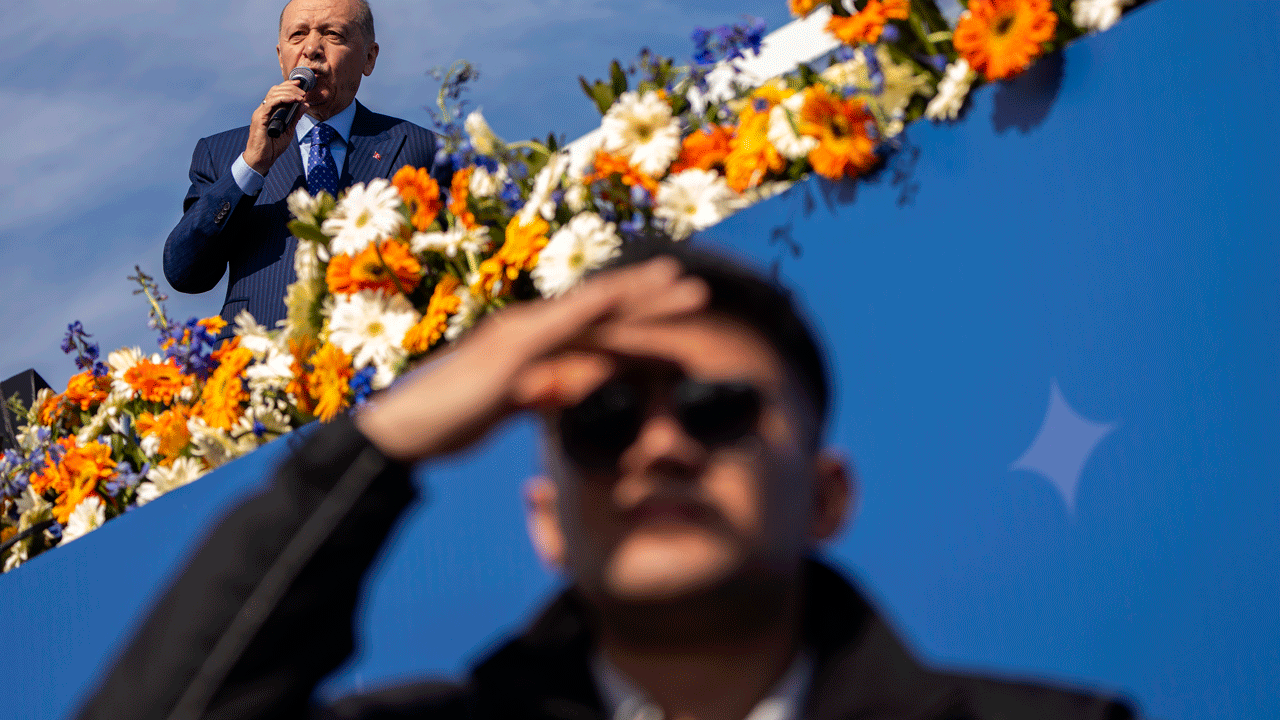
- As Turkish citizens vote in local elections this Sunday, the ruling party of President Recep Tayyip Erdogan will try to win back cities it lost in 2019.
- In the last local elections held five years ago, a united opposition won the ‘municipalities of the capital Ankara and the commercial hub of Istanbul.’
- Winning back Istanbul and Ankara could spur Erdogan to introduce a new constitution that allows him to rule beyond his current term, analysts say.
ANKARA, Turkey (AP) — On Sunday, millions of voters in Turkey head to the polls to elect mayors and administrators in local elections which will gauge President Recep Tayyip Erdogan’s popularity as his ruling party tries to win back key cities it lost five years ago.
A victory for Erdogan’s party might spur the Turkish leader into pursuing constitutional changes that could allow him to rule beyond his current term’s limit.
16 DEAD, INCLUDING 4 CHILDREN, AFTER MIGRANT BOAT SINKS OFF THE COAST OF TURKEY
Meanwhile, retaining the key cities’ municipalities would help invigorate Turkey’s opposition, left fractured and demoralized following a defeat in last year’s presidential election.
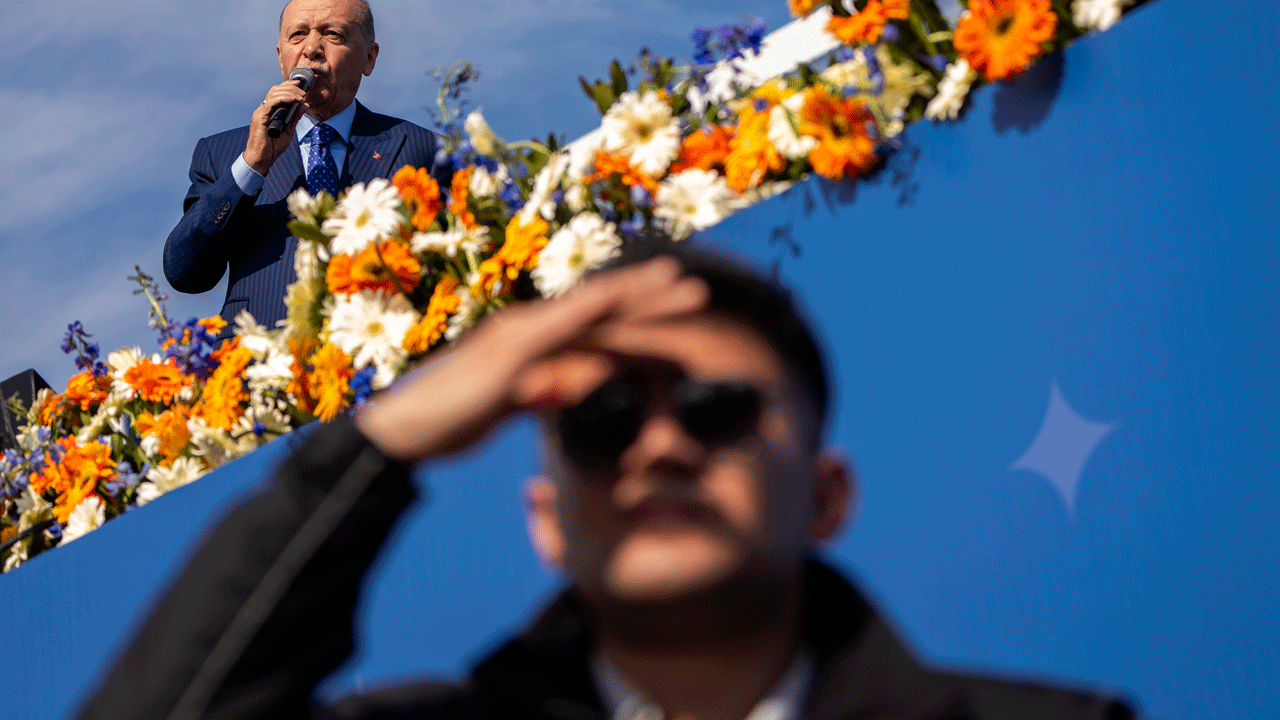
Turkish President and leader of the Justice and Development Party, or AKP, Recep Tayyip Erdogan, gives a speech during a campaign rally ahead of nationwide municipality elections, in Istanbul, Turkey, Sunday, March 24, 2024. On Sunday, millions of voters in Turkey head to the polls to elect mayors and administrators in local elections which will gauge President Recep Tayyip Erdogan’s popularity as his ruling party tries to win back key cities it lost five years ago. (AP Photo/Francisco Seco)
Here’s a deeper look at what’s at stake and what the results could hold for Turkey’s future.
THE BATTLE FOR ISTANBUL
In the last local elections held in 2019, a united opposition won the municipalities of the capital Ankara and the commercial hub of Istanbul, ending the ruling party’s 25-year hold over the cities.
The loss of Istanbul especially was a major blow to Erdogan, who began his political career as mayor of the metropolis of nearly 16 million in 1994.
Erdogan has named Murat Kurum, a 47-year-old former urbanization and environment minister, to run against incumbent mayor, Ekrem Imamoglu — a popular politician from the center-left Republican People’s Party, or CHP. Imamoglu has been touted as a possible presidential candidate to challenge Erdogan.
This time around, however, Imamoglu, 52, is running in the local elections without the support of Turkey’s main pro-Kurdish party or the nationalist IYI Party who are fielding their own candidates.
Meanwhile, a new religious-conservative party, the New Welfare Party, or YRP, has also thrown its hat into the ring. Appealing to conservative and religious voters who have been disillusioned with Erdogan’s handling of the economy, it is expected to steal some votes from Erdogan’s candidates.
Opinion polls point to a neck-and-neck race between Imamoglu and Kurum who have both promised infrastructure projects to render buildings earthquake-proof and to ease the city’s chronic traffic congestion.
The opposition is widely expected to maintain its hold on Ankara where the incumbent mayor Mansur Yavas, who has also been named as a future presidential candidate, remains popular.
ERDOGAN SEEKS TO CONSOLIDATE POWER
Leaving nothing to chance, Erdogan, who has been in power as prime minister and then as president for more than two decades, has been holding election rallies across the country, campaigning on behalf of candidates running for mayor.
Analysts say winning back Istanbul and Ankara and achieving a strong showing in the ballots would stiffen Erdogan’s resolve to introduce a new constitution that could allow him to rule beyond 2028 when his current term ends. The current constitution sets a two-term limit on the presidency. Erdogan, 70, ran for a third term last year, citing a technicality, because the country switched to a presidential system in 2018 and his first term was held under the previous system.
Erdogan and his allies don’t currently have sufficient seats in parliament to enact a new constitution, but another electoral triumph may sway some conservative opposition parliamentarians to switch sides, analysts say.
Earlier this month, Erdogan said Sunday’s election would be his last according to the constitution. Critics see his comments as a ploy to win sympathy votes of supporters reeling from a cost-of-living crisis, as well as a strategy to push for the constitutional amendments.
THE OPPOSITION HOPES TO BOUNCE BACK
A six-party opposition alliance, led by the CHP, has disintegrated following a devastating election defeat last year. The alliance’s supporters were left demoralized after it failed to unseat Erdogan despite the economic turmoil and the fallout from a catastrophic earthquake.
The CHP’s ability to hold onto the major cities it took five years ago would help revitalize the party and allow it to present itself as an alternative to Erdogan’s ruling party. Losing Ankara and Istanbul to Erdogan’s party could, on the other hand, end Yavas and Imamoglu’s presidential aspirations.
The CHP went for a leadership change soon after the electoral defeat, but it remains to be seen whether the party’s new chairman, 49-year-old pharmacist Ozgur Ozel, can excite supporters.
UNFAIR CAMPAIGNING
As in previous elections, Erdogan has been using the advantages of being in office, often availing himself of state resources while campaigning. Some 90% of Turkey’s media is in the hands of the government or its supporters, according to media watchdog groups, promoting the ruling party and its allies’ campaigns while denying the opposition the same opportunity.
State broadcaster TRT devoted 32 hours of airtime to the ruling party in the first 40 days of campaigning compared with 25 minutes devoted to the challengers, according to the opposition.
During campaigning, Erdogan has issued thinly veiled warnings to voters to support ruling party-backed candidates if they want to receive governmental services. He increased the minimum wage by 49% to bring some relief to households, despite his government’s efforts to control high inflation.
The Turkish leader has also continued to showcase his country’s success in the defense industry during his campaign rallies. A prototype of Turkey’s homegrown fighter jet, KAAN, performed its maiden flight last month, in what critics believe was timed ahead of the elections.
KURDISH VOTES
Kurdish voters make up an estimated 10% of the electorate in Istanbul and the way they cast their vote could be decisive in the mayoral race
Turkey’s pro-Kurdish party — now known as the Peoples’ Equality and Democracy Party, or DEM — opted to support Imamoglu in the 2019 municipal elections, helping him win. This time, however, the party is fielding its own candidates, in a move that could lure votes away from Imamoglu.
Still, some observers say, the party deliberately named two low-profile candidates in tacit support of the current mayor. The Kurdish party traditionally has male and female figures share leadership positions.
CLICK HERE TO GET THE FOX NEWS APP
Meanwhile, the DEM Party is expected to win many of the municipalities in Turkey’s predominantly Kurdish-populated southeastern regions. The question remains whether the party would be allowed to retain them. In previous years, Erdogan’s government removed the elected mayors from office for alleged links to Kurdish militants and replaced them with state-appointed trustees.
During a rally in the mostly Kurdish city of Hakkari on March 15, Erdogan urged voters not to vote for individuals he said would transfer municipal funds to the «terrorist organization,» in reference to the banned Kurdistan Workers’ Party, or PKK.
INTERNACIONAL
Elecciones en Francia: qué escenarios políticos se abren ahora tras el triunfo de la izquierda

El triunfo de la izquierda en este balotaje suponen un revés para la líder ultraderechista Marine Le Pen, que fracasa en su intento de lograr la mayoría absoluta, que las proyecciones consideraban posible hace una semana, e incluso de ganar, como parecía posible hace dos días.
Varias hipótesis emergen: una difícil coalición entre parte de la izquierda y el oficialismo, o incluso un gobierno tecnócrata con apoyo parlamentario en la segunda economía de la UE.
Sin embargo, una eventual coalición parece difícil por las críticas cruzadas entre La Francia Insumisa (LFI, izquierda radical) de Mélenchon, importante socio del NFP, y el oficialismo. Macron calificó durante la campaña a este partido de «antiparlamentario» y «antisemita».
Una alternativa a LFI sería integrar en esta coalición a los diputados de derecha de Los Republicanos (LR), que no pactaron con RN. Sus eventuales escaños, entre 57 y 67, podrían ser cruciales para una alianza parlamentaria sin la izquierda radical.
«Nuestro pueblo ha rechazado claramente el peor escenario posible», declaró el líder izquierda radical Jean-Luc Mélenchon, para quien el NFP, que carece de mayoría absoluta, debe «gobernar», pero sin «entablar negociaciones» con la alianza de Macron.
El presidente francés pidió «prudencia» tras conocerse las primeras proyecciones y aseguró que su alianza de centroderecha «sigue bien viva». «La cuestión es quién gobernará a partir de ahora y logrará una mayoría», agregó.
Los pactos implícitos entre el oficialismo y la coalición de izquierdas, consistentes en concentrar el voto en el candidato con más posibilidades de derrotar a RN en cada circunscripción, frustraron no obstante la victoria ultraderechista.
El gran interrogante es a quien llamará el presidente Emmanuel Macron a ser el primer ministro. Macron quiere una coalición “coherente” para llegar a los 289 diputados para poder gobernar y pasar su legislación.. Pero ha decidido cancelar su discurso: no hablará hoy al país.
Frente a este escenario será Macron quien elija al primer ministro, opte por un gobierno técnico o por una gran coalición de convergencia moderada, excluyendo al RN y a la Francia Insumisa, a quien consideran ultra y antisemita.
En sus primeras palabras, el jefe de la Francia Insumisa, Jean Luc Melenchon habló y desafió al jefe de Estado. Dijo que “el presidente debe inclinarse y llamar al Nuevo Frente Popular a gobernar”. El primer ministro Gabriel Attal deberá renunciar y el NFP va a aplicar su completo programa, que va a aterrorizar a los empresarios.
El ex presidente François Hollande ganó en Tulle en esta segunda vuelta y puede llegar a ser un primer ministro moderado en el nuevo gobierno.
Artistas, deportistas, sindicatos y organizaciones se movilizaron para frenar la llegada al poder de la extrema derecha, como la estrella del fútbol Kylian Mbappé, que había llamado a votar «del lado bueno», en estos tensos comicios.
-
POLITICA1 día ago
Detuvieron a un hombre armado a metros del acto de Milei en San Juan
-
ECONOMIA3 días ago
La inflación de junio rondaría el 5,2% según los analistas consultados por el Banco Central
-
SOCIEDAD3 días ago
Caso Loan: Camila declaró por más de cinco horas y al salir pidió que encuentren al nene
-
POLITICA2 días ago
El Gobierno busca bajar la tensión con el PRO y dice que cumplirá el fallo por la coparticipación a la Ciudad que reclamó Macri
-
POLITICA3 días ago
Federico Sturzenegger es el nuevo ministro de Desregulación y Transformación del Estado
-
POLITICA2 días ago
Caso Loan: incidentes en la puerta del Juzgado Federal tras la detención de Laudelina Peña



